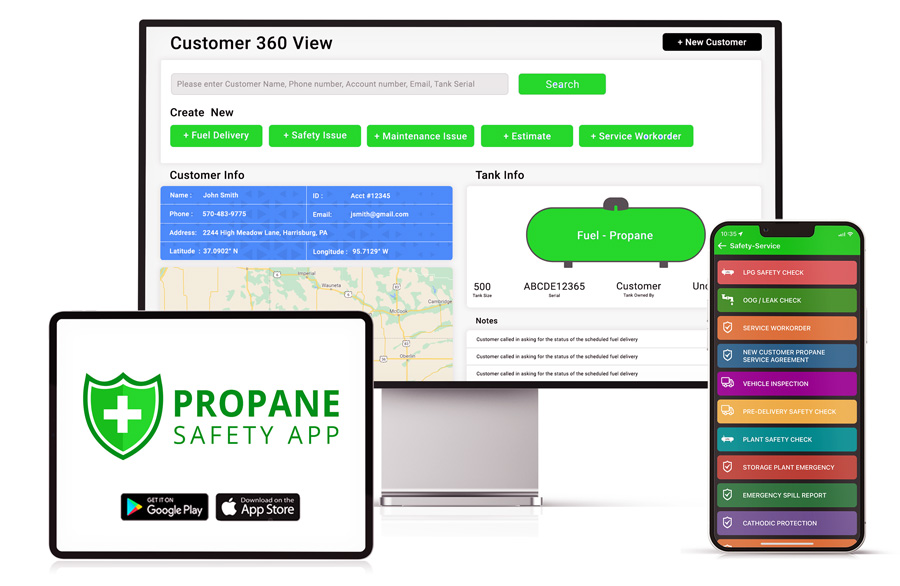Safeguarding Operations: The Imperative of a Security Plan

In the complex realm of the propane industry, compliance with various regulations stands as a cornerstone for ensuring operational integrity. One such critical requirement is the implementation of a Department of Transportation (DOT) security plan, an indispensable component for propane companies. Let’s explore the significance of a DOT security plan, its essential elements, and why businesses must not only establish but consistently update and adhere to such plans.
Understanding the DOT Security Plan
A DOT security plan is a meticulously crafted document that serves as a comprehensive guide for propane businesses. Its primary purpose is to outline precise steps to be taken in the event of a security breach. Beyond being a reactive tool, the plan also functions as a training manual for employees, equipping them with the knowledge and readiness to respond to these urgent situations effectively. Furthermore, the plan aids companies in evaluating security risks and implementing preventative measures to curb unauthorized access.
Mandatory for Propane Companies
The DOT Code of Federal Regulations (49 CFR 172.802) mandates that companies operating propane cargo tank motor vehicles with a water capacity exceeding 792 gallons, such as bobtails, must have a written security plan. Given the nature of propane operations, the majority of companies in the industry fall under this category, making a DOT security plan a regulatory necessity.
Training Requirements for Compliance
Ensuring compliance goes beyond merely having a written plan; it extends to thorough training for employees. Those engaged in tasks subject to hazardous materials regulations, including customer service representatives, delivery drivers, and service technicians, must undergo DOT hazmat training. This includes in-depth training on the written security plan. Importantly, this training is not a one-time event but must be refreshed at least every three years or within 90 days of any revisions to the plan.
Ongoing Training and Plan Maintenance
Continuous training is imperative for employees to stay abreast of the latest protocols and to respond effectively to evolving security concerns. Additionally, a written DOT security plan is not a static document. It requires regular reviews, at least once per year, to ensure it aligns with the dynamic nature of a company’s operations. Periodic revisions and updates are vital to reflect any changes in circumstances.
A meticulously crafted DOT security plan is not only a regulatory requirement but a proactive strategy for promoting a safe work environment, avoiding fines, and protecting propane businesses from potential risks or litigation. Beyond compliance, embracing this approach is instrumental in meeting critical DOT requirements, fostering a culture of safety, and ensuring the long-term sustainability of propane operations.

As an additional resource to enhance propane security plans, companies may explore tools like the Propane Safety App. Developed by Propane Safety Pro’s Training and Compliance System over two decades, this app offers a comprehensive solution for improved documentation and operational efficiency. With features such as safety inspections, tank management, and a complete scheduling system, it seamlessly complements existing security plans. To learn more about this impressive resource, be sure to visit PropaneSafetyPro.com/SafetyApp.














